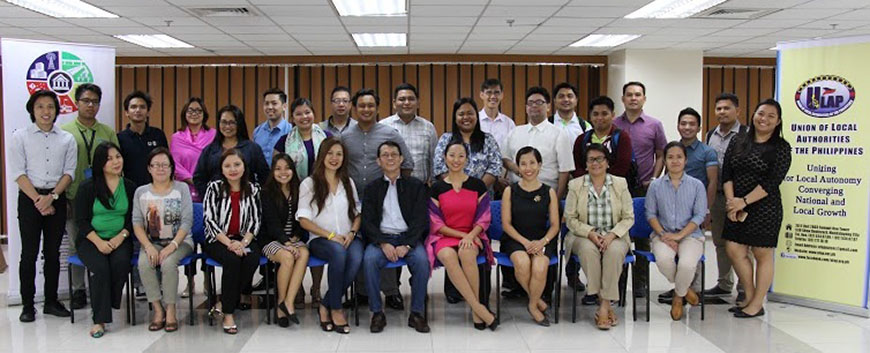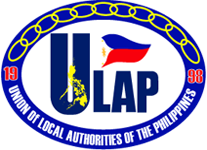Political and Economic Risk Briefing: The Political Economy and Reforms under the Duterte Administration
 The Ateneo School of Government (ASoG) invites you to be part of the "Political and Economic Risk Briefing: The Political Economy of Reforms under the Duterte Administration" on September 13, 2016. This briefing will provide the following:
The Ateneo School of Government (ASoG) invites you to be part of the "Political and Economic Risk Briefing: The Political Economy of Reforms under the Duterte Administration" on September 13, 2016. This briefing will provide the following:
• Assessment of the Political and Economic Climate of the Country: A Contextual Analysis with Perspective on the International Political Economy;
• Trajectory of the Duterte Administration towards Political and Economic Reforms;
• Political and Economic Projections: Opportunities and Risks; and
• Key Governance Issues
This briefing also brings key information for decision-makers in both public and private sectors and will draw on the expertise and research of the ASoG.
You may register online through this link: https://docs.google.com/forms/d/19X7ep316oaAlkY33uIQxCxmx2k70G5Qp3IXmAQR5xRM/viewform?c=0&w=1&fbzx=-6650494694439705000
For more questions, please contact Prof. Aurma Manlangit, Director, JVO Executive Education Program through (632) 426-5938 or email at This email address is being protected from spambots. You need JavaScript enabled to view it. .
Seal of Good Local Governance (SGLG) cited as an example of Open Government Partnership Subnational Initiative
The SEAL OF GOOD LOCAL GOVERNANCE (SGLG) is cited as an example of an Open Government Partnership (OGP) Subnational initiative in the OGP website . The article talks about the OGP International program of building networks of subnational champions of open government in different countries.
Here's the link: http://www.opengovpartnership.org/how-it-works/subnational-government-pilot-program.
SGLG is a program implemented by the Department of Interior and Local Government. The Union of Local Authorities of the Philippines represents local governments in the Philippine OGP Steering Committee, and has shared the impact of the SGLG program to subnational governance in the OGP International Summit in Mexico, in November 2015.
EXCERPT
The Philippines Seal of Good Local Governance Program (The Seal): Incentivizing Local Governments to be More Transparent and Better Serve their Residents.
Many national level governments have also taken important strides to advance open government reform work at the local level in their countries. Using a comprehensive indicator assessment and performance-based grants incentive system, the Philippines "Seal of Good Local Governance" (The Seal) program aims to:
1. Improve government service delivery by fostering openness and participation; and
2. Improve the capacity of local governments.
To confer the Seal, a total of 1,676 civil society organizations assess 1,715 provincial, city and municipal governments based on a set of criteria that fall under six umbrella areas:
1. Financial Good Housekeeping;
2. Disaster Preparedness;
3. Social Protection,
4. Business Friendliness and Competitiveness;
5. Peace and Order; and
6. Environmental Management.
To make assessment possible, local government must first open up their information. As a result of the program today more than 90% of 1715 provincial, city and municipal governments regularly upload their financial documents to a "Full Disclosure Policy Portal," which can be viewed and downloaded by citizens at anytime. Local governments who meet the program's criteria are conferred with the Seal and can then access incentive packages, such as grants and loans from financing institutions to implement projects in support of the Millennium Development Goals. Through performance-based grants such as these, around 15,000 development projects amounting to $1.2 billion dollars were implemented across 1,500 local governments.
The program has had significant results on local governments. For example, in 2009, before the program was implemented, 480 local governments obtained "adverse financial audit findings." In 2013, this number was reduced to only 120, a 75% decrease. Moreover, access to some services at the local level has also improved considerably. For instance, before the implementation of the scaled-up Seal in 2013, only 56% of city and municipal governments offered complete maternal care services, compared to 67% a year after the program began. As a further testament to the Seal's usefulness, banks and many government agencies are now using it as a requirement for local governments to access development loans, grants and programs.
Nominate your hero now to the 7th RAFI Triennial Awards!
 The search is on for the Exemplary Individuals and the Outstanding Institutions in the Visayas and Mindanao! Do you know of an “unsung” hero who has touched the lives of many in your community?
The search is on for the Exemplary Individuals and the Outstanding Institutions in the Visayas and Mindanao! Do you know of an “unsung” hero who has touched the lives of many in your community?
The RAFI Triennial Awards is the premier award for social development in the Visayas and Mindanao that recognizes the philanthropic, humanitarian, and holistic efforts of individuals and institutions in enhancing the quality of life of various communities and groups.
Nominate them today! Visit this link to send us their details: www.rafi.org.ph/triennialawards/425/nomination-form/ (Multiple nominations are allowed. Nominating is easy: Tell us their name, their contact details, and your reason for nominating them!)
You may nominate them online or you may fill up the nomination form through the link below and send the form to our office:
RAFI Triennial Awards - Eduardo Aboitiz Development Studies Center
Ramon Aboitiz Foundation, Inc.
35 Lopez Jaena Street
Cebu City 6000
Learn more about the RAFI Triennial Awards by visiting our Facebook Page: https://www.facebook.com/RAFITriennialAwards/ or visiting our website: www.rafi.org.ph/triennialawards/.
Help us find the next finalists to the 7th RAFI Triennial Awards. Finalists and Awardees will receive a cash prize, publicity and promotions of their work, and a special RAFI Triennial Awards trophy.
Download the Nomination Form here.
Inviting applications - Women, Leadership and Impact in Asia - 30 June to 2 July 2016, Singapore
Click to download pdf copy
Seeking current and emerging leaders to join a unique three-day executive education programme at Lee Kuan Yew School of Public Policy in Singapore. By attending this programme you will learn practical strategies for personal success, understand how organisations can help or hinder gender equality, and analyse structural barriers for women leaders in Asia. The programme will bring together people from the public, private and non-government sectors to share experiences and network.
For more information and to sign up go to at http://lkyspp.sg/WLI-Asia.
ULAP shares Project Learnings to National Bottom-up Budgeting Stakeholders

During the activity, attended by members of the National Poverty Reduction Action Team (NPRAT), Department of Budget and Management (DBM), Department of Interior and Local Government (DILG), and other National Civil Society Organizations (CSOs) working on BuB, the project team presented two (2) main project outputs. Both aimed to resolve issues and concerns on BuB reporting, as identified by the local stakeholders. The said project outputs are:
The BuB Almanac - A consolidation of all reporting checklists and templates for BuB projects for 2015-2016, that aims to streamline all the information into one list that can be easily accessed by local governments and CSOs through local and national platforms, both online and offline, which in turn improve their reporting of project implementation.
The Creation of the BuB Hotline - A common prototype which serves as an initial feedback platform for the LGUs and CSOs with regard to their issues and concerns on BuB, especially on reporting. Although this is the main objective of the Hotline, what is more innovative is that the prototype is different from each sites, taking in consideration different factors, such as the availability of internet infrastructure, and concerns and issues of the municipal/city governments and CSOs.
Other discussion points during the session included: (1) the project’s assessment of BuB reporting and monitoring gaps for further policy actions; (2) project prototypes developed by local BuB stakeholders to troubleshoot identified reporting and monitoring problems; (3) BuB Almanac as an innovative solution to reporting and monitoring problems; and (4) key points forward for policy and program integration for BuB.
MAVC Philippines Country Engagement Developer Ms. Vivien Suerte-Cortez gave the closing remarks and mentioned the possibility of a scale up project that will build on the learnings of the newly and successfully completed project.
For a more comprehensive discussion on what was discussed during the Lessons Learned Session, the White Paper is available for download here.
ULAP vets BuB Almanac to Abra, Cebu, and Surigao del Norte LPRATs
 The Union of Local Authorities of the Philippines (ULAP), through the “Developing technology-based innovation platforms at provincial level: Supporting Bottom Up Budgeting (BuB) projects for 2015 in Luzon, Visayas, and Mindanao to identify context specific tech-based innovations to support with making the BuB reporting and monitoring more feasible and information accessible to civil society organizations, provincial government and communities at large” project with Making All Voice Count (MAVC) and HIVOS, vetted the draft BuB Almanac to Surigao del Norte, Abra, and Cebu LPRATs during the project’s third monitoring visits on April 12-14, 2016, April 14-16, 2016 and April 19-21, 2016 respectively.
The Union of Local Authorities of the Philippines (ULAP), through the “Developing technology-based innovation platforms at provincial level: Supporting Bottom Up Budgeting (BuB) projects for 2015 in Luzon, Visayas, and Mindanao to identify context specific tech-based innovations to support with making the BuB reporting and monitoring more feasible and information accessible to civil society organizations, provincial government and communities at large” project with Making All Voice Count (MAVC) and HIVOS, vetted the draft BuB Almanac to Surigao del Norte, Abra, and Cebu LPRATs during the project’s third monitoring visits on April 12-14, 2016, April 14-16, 2016 and April 19-21, 2016 respectively.
The BuB Almanac, which is composed of checklists and templates for BuB projects for 2015-2016, is a product of the abovementioned project’s Design Thinking Workshop where participants expressed problems on reporting delays due to varying checklists and templates per National Government Agency (NGA) per nature of project.
During the vetting and gathering of inputs and further suggestions on the Almanac, Municipal BuB focal persons and engineers were very appreciative of the technology. They said that the Almanac will be very useful to them in terms of confidence in preparing the reports, while maximizing limited human resources and ensuring the timelines of the report. Thus, this leads to avoidance of the delays in tranche downloaded to the LGUs and subsequent implementation. They, however, expressed their request that all requirements, core requirements at the least, be harmonized among all NGAs implementing BuB.
Local CSOs were also glad that their LGU counterparts will be aided by the Almanac, they however requested for a CSO kit that will assist them in explaining the BuB process and reporting back to their constituents. They said that they are very much aware of the difficulties in reporting because project status and challenges are presented as updates during LPRAT meetings.
Moving forward, ULAP looks forward to facilitate wider online and offline distribution of the Almanac in partnership with the National Poverty Reduction Action Team (NPRAT). It also looks forward to develop a 2017 BuB Almanac ahead of time to assist LPRATs comply with reporting ahead of time by providing the technical and policy information they need at the onset of project implementation.
Aside from getting inputs on the draft BuB Almanac, the team also conducted a survey on the LGU-CSO relationship, the Assessment of other sector's performance in the LPRAT, the BUB reporting alignment and the PLGU roles in BUB. The result of the survey can be found in the Project’s Lessons Learned White Paper. You can download it here.



